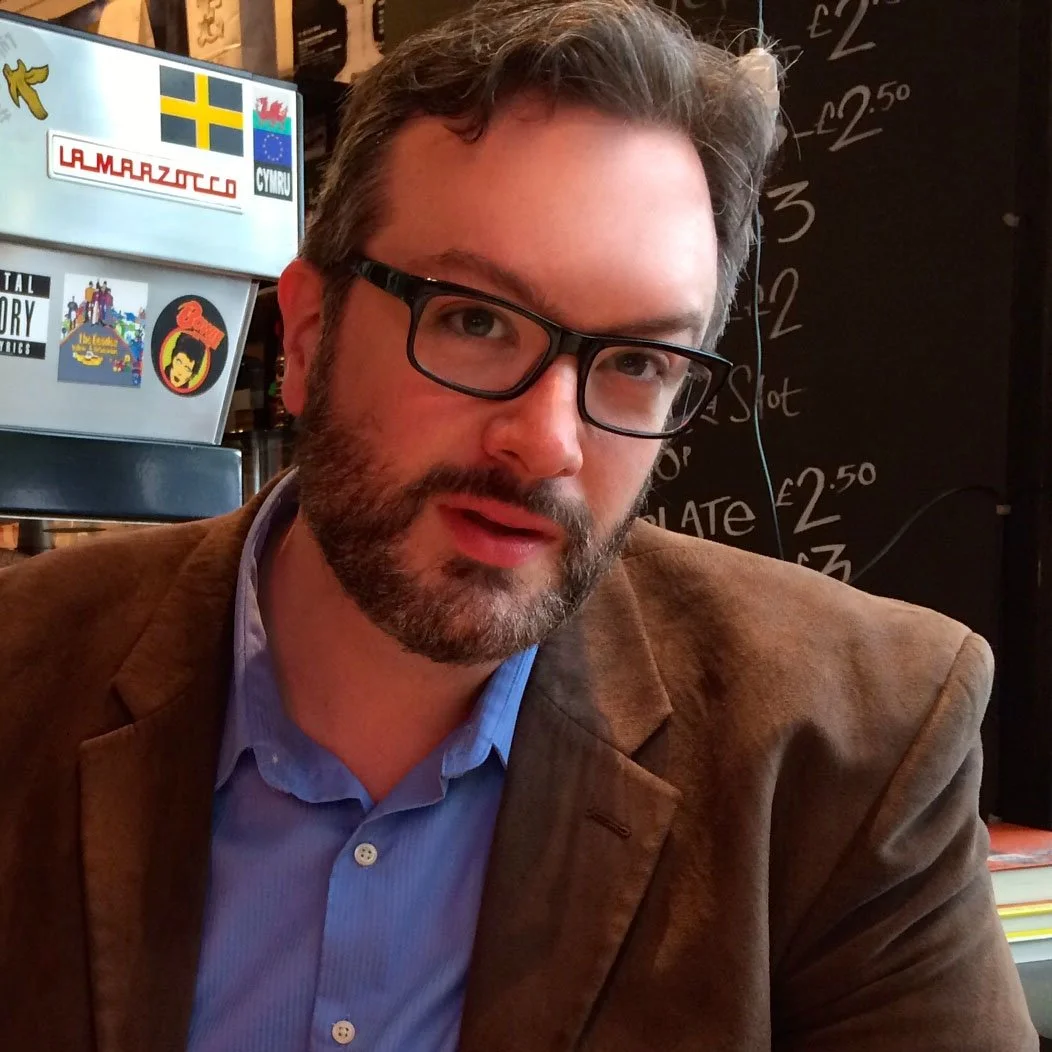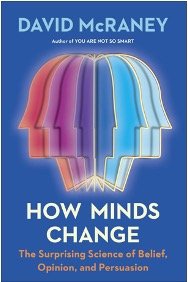David McRaney
2022
A journalist and lecturer specializing in biases, delusions, and fallacies, David McRaney is the author of the pop-psychology tomes YOU ARE NOT SO SMART and its sequel, YOU ARE NOW LESS DUMB.
From creator of the popular blog, book, and podcast “You Are Not So Smart” Dave McRaney, an engaging journey through the psychology of persuasion to answer the question that may define our time: how do minds change--and can we change them?
Change isn't the mystifying process we assume, it can be studied and understood, and with the right tools, any of us can think differently -- and persuade others. HOW MINDS CHANGE is great on the page. It reads like an adventure story, a nonfiction narrative threaded with immersive stories and credible research that will surprise, teach, and entertain -- offering concrete strategies and tools that readers can use to have better conversations and think differently about opposing viewpoints.
Through fascinating anecdotes of cult members, 9/11 Truthers, and former congregants of the Westboro Baptist Church, woven with new research from a variety of disciplines, David McRaney brings us on a tour through the surprising psychology behind how people modify and update their beliefs, attitudes, and values, and shows how that psychology affects you every day.
A two-time winner of the William Randolph Hearst Award, journalist David McRaney writes the blog youarenotsosmart.com. He is the creator of the popular podcast "You Are Not So Smart," which averages at least 150,000 downloads per episode, 500,000 downloads a month.
In Lighter, yung pueblo demonstrates how we can all move forward in our healing, from learning self-compassion to letting go to becoming emotionally mature. As the heaviness falls away, our minds will stop feeling overburdened with tension, we’ll be able to reconnect with the present, and the world around us will become more inviting, crisp, and newly vibrant. But these are just the first steps. As we grow stronger and expand our self-awareness, it’s our responsibility—and part of the healing journey—to take actions to support the health and harmony of all people. The final section of Lighter shows how we can and must contribute to building a world that is no longer structurally harmful, but instead, structurally compassionate.
yung pueblo’s hope is that as more people heal themselves, our actions will become more intentional, our decisions will become more compassionate, our thinking will become clearer, and the future will become brighter.


